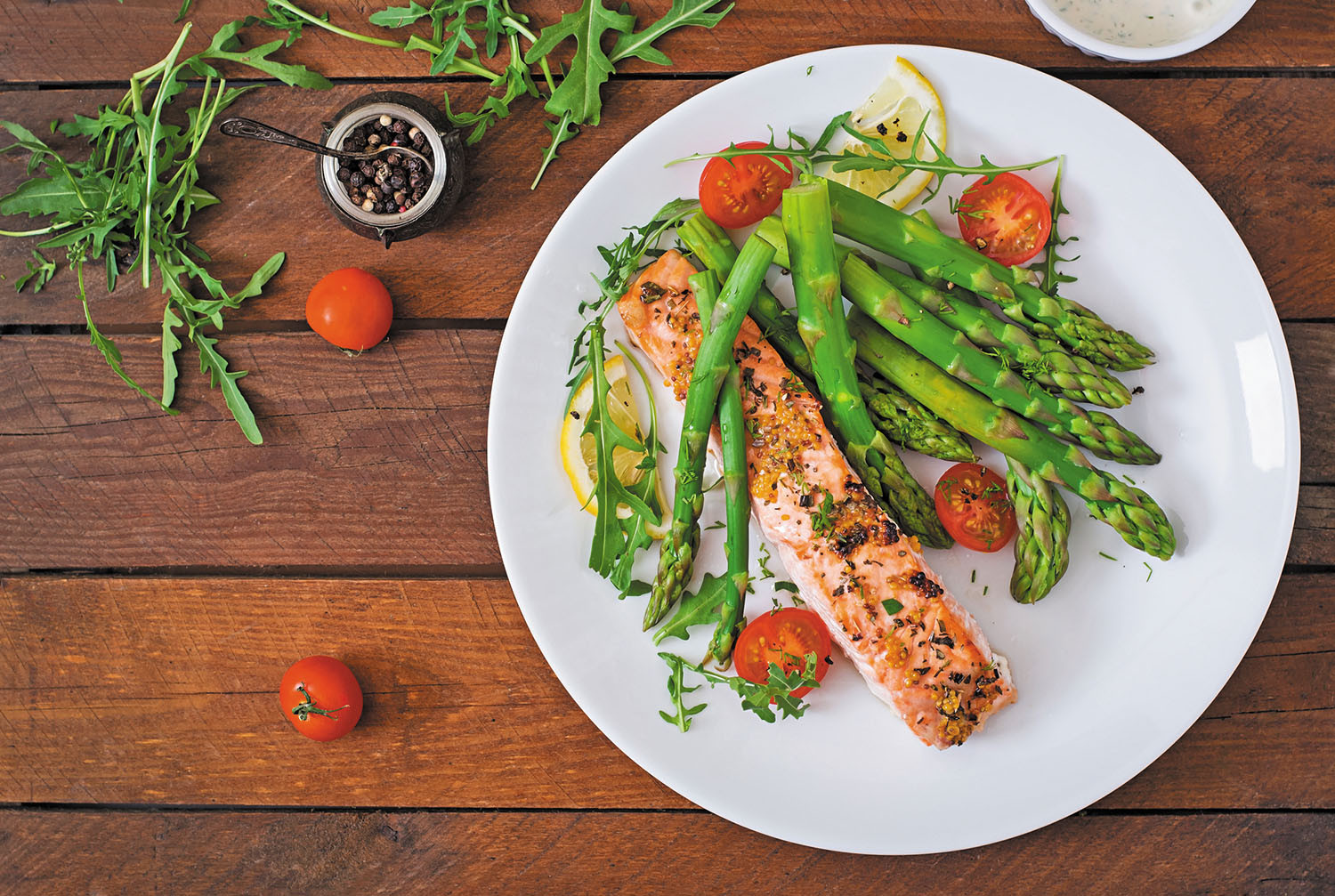
5 timeless habits for better health

What are the symptoms of prostate cancer?

Is your breakfast cereal healthy?

When pain signals an emergency: Symptoms you should never ignore

Does exercise give you energy?

Acupuncture for pain relief: How it works and what to expect

How to avoid jet lag: Tips for staying alert when you travel

Biofeedback therapy: How it works and how it can help relieve pain

Best vitamins and minerals for energy

Should you take probiotics with antibiotics?
Staying Healthy Archive
Articles
FDA: Certain antibiotics may bring serious risks
Research we're watching
In December 2018, the FDA issued a warning about certain antibiotics known as fluoroquinolones, a drug class that includes ciprofloxacin (Cipro) and levofloxacin (Levaquin). The drugs are associated with rare ruptures or tears in the body's main artery, the aorta, which can cause serious, sometimes fatal bleeding. Cases were reported in people taking these antibiotics orally or by injection.
Because of this risk, the FDA is advising doctors to try to avoid prescribing these antibiotics to people who are at higher risk for problems with the aorta, unless there are no other antibiotics available to treat the infection. This includes people who have high blood pressure, certain genetic disorders (such as Marfan syndrome and Ehlers-Danlos syndrome), or a history of arterial blockages or aneurysms.
Long-term exercise programs linked to reduced fall risk
News briefs
Image: © Vesnaandjic/Getty Images
You probably know that exercise can help you maintain your balance and prevent falls, which are among the top causes of injury and death among older adults. But if you're worried that being active will wind up increasing your risk of getting hurt, a large study may put your fears to rest. The research, published online Dec. 28, 2018, by JAMA Internal Medicine, analyzed 40 randomized trials that included about 22,000 older adults. People who exercised for one year or more had a 12% relative reduction in falls and a 26% relative reduction in falls with injury, compared with people who didn't exercise. Also: exercising long-term was not associated with an increase in the rate of hospitalization or death (though it wasn't linked to a reduction, either). Researchers didn't determine which kind of exercise was best. However, the most benefits were seen when people exercised three times per week, 50 minutes per session, in programs that included several components, such as balance exercises, strength training for the lower limbs, and aerobic exercise (the kind that gets your heart and lungs pumping, like brisk walking).
Keep your advance directive safe but accessible
Many people understandably want to keep their living will and health care power of attorney forms in a secure place. But if these documents are locked away in a safe deposit box, they won't be much help if you're unexpectedly hospitalized. Here are some people who should have copies of your advance directives and some other places where they should be filed.
Your health care agent and any alternative agents. All should have a copy of your health care power of attorney (and your living will, if you have one). In an emergency, your agent may need to fax the documents to doctors or a hospital.
Your doctor. A copy of your advance directives should be in your file and medical record.
Your hospital chart. If you are in the hospital, ask to have a copy of your advance directives put in your chart. (Your health care agent or a family member should do so if you are unable to do it.)
A safe spot in your home. File the original documents in a secure place in your home — and tell your agent, family, and friends where you put them. Hospitals may request an original, so it's important that someone can find the documents when necessary. The National Hospice and Palliative Care Organization suggests noting on all copies of the documents where the originals are stored.
Carry it with you. Put a card with your health care agent's name and contact information in your wallet or purse. Also note on the card where you keep the original and additional copies of your directives.
If you have a do not resuscitate order (DNR), remember that you or your health care agent may be required to produce a signed form, or you may have to wear a special bracelet identifying that decision. If a lawyer drew up your advance directives, ask whether he or she will keep a copy, and for how long.
4 simple ways to boost your energy
Do you sometimes feel like the Energizer Bunny when his battery runs low? You might start the day strong, but by midafternoon, you can't quite keep going and going.
Fatigue afflicts everyone at one time or another. Assuming your doctor has ruled out serious medical causes, there are a few basic steps you can take to "recharge your batteries."
Feeling uninspired about tackling a core workout?
Sticking with exercise isn't always easy, but setting goals and having a plan for when your motivation lags can help. If you're spending more time finding excuses than doing those planks and bridges, try taking a look at the list below for some inspiration.
Doing core exercises regularly will
- keep your back strong and flexible, which will help you avoid low back pain
- ease back pain or stiffness so you can move, sit, and sleep comfortably
- enhance your balance and stability, which will help prevent falls and make walking and other activities easier
- reclaim the strength and flexibility you need for everyday movements like bending, turning, and lifting
- build up the strength and flexibility you need for on-the-job tasks like lifting heavy items, twisting, or standing or sitting at a desk for hours
- add power to activities you enjoy, like tennis, running, golf, kayaking, gardening — or any other active pursuit
- improve your posture, which can trim your figure visually and help prevent back injuries
- help tone your waistline
- spice up your regular workouts by adding variation.
For more ways to keep your core muscles strong and working for you, read Gentle Core Exercises, a Special Health Report from Harvard Medical School.
Ask the doctor: Microwave's impact on food
There's less time for nutrients to break down when food is cooked quickly. |
Q. Does using a microwave to cook ruin the nutrients in food?
Can fish oil stave off heart disease?
Ask the doctor
Image: © Elena_Danileiko/Getty Images
Q. I'm taking fish oil supplements to keep me from getting heart disease, because my doctor said they may help, though it's controversial. I hear new studies come to different conclusions. What's the truth?
A. In these pages, the best we can promise you is a balanced assessment of sometimes different study results: the "truth" usually is elusive. Your question likely was prompted by two important new studies published in November 2018, and they do seem to point in different directions. I'll do my best to give you my current "bottom line" and resolve the confusion. I reserve the right to change my mind as new studies are reported.
Fill up on phytochemicals
Eating a varied diet of colorful plant foods may have benefits that go beyond the power of vitamins and minerals.
Image: © sf_foodphoto/Getty Images
Whenever you bite into a juicy red apple or crunch a mouthful of dark, leafy greens, you consume more than just vitamins, minerals, and fiber. You also get a power-packed bite of plant substances called phytochemicals. They're not known to be essential for health, like vitamins and minerals, but they may go a long way toward keeping us healthy.
"We're still just learning about them. The science is ongoing. But they may help fight cancer and heart disease," says Debbie Krivitsky, director of clinical nutrition at the Cardiovascular Disease Prevention Center at Harvard-affiliated Massachusetts General Hospital.
The dish on dairy
Are dairy foods healthy, or is it best to reduce or even avoid them in your diet? Here is what the science says.
Image: © nehopelon/Getty Images
Dairy is one of the most controversial food groups. Is it healthy — or a health risk? It really depends on what you need.
"Dairy isn't necessary in the diet for optimal health, but for many people, it is the easiest way to get the calcium, vitamin D, and protein they need to keep their heart, muscles, and bones healthy and functioning properly," says Vasanti Malik, nutrition research scientist with the Harvard T.H. Chan School of Public Health.

5 timeless habits for better health

What are the symptoms of prostate cancer?

Is your breakfast cereal healthy?

When pain signals an emergency: Symptoms you should never ignore

Does exercise give you energy?

Acupuncture for pain relief: How it works and what to expect

How to avoid jet lag: Tips for staying alert when you travel

Biofeedback therapy: How it works and how it can help relieve pain

Best vitamins and minerals for energy

Should you take probiotics with antibiotics?
Free Healthbeat Signup
Get the latest in health news delivered to your inbox!
Sign Up











